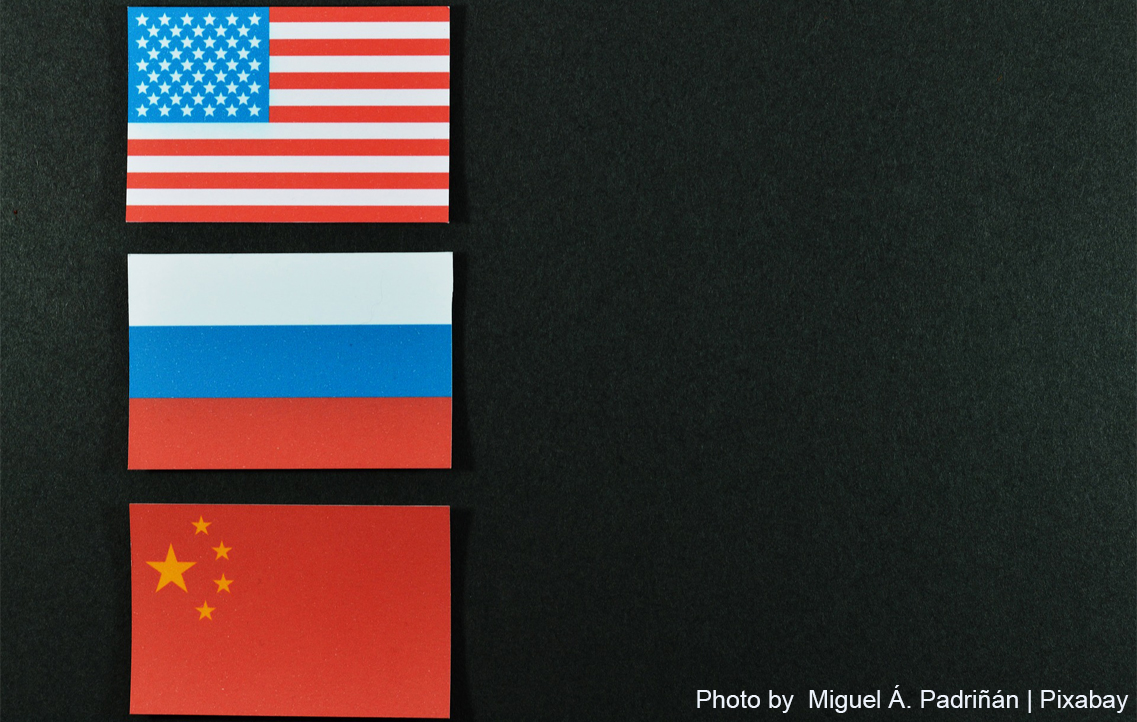
The Western resistance to the Russian invasion of Ukraine, and China’s refusal to condemn it, recalls the yet-inconclusive battle of ideological wills waged between the West and the forces of terror.
While Russia and China are hardly terroristic states, their intransigence recasts Al-Qaeda’s defiance of Western society at a higher, nuclear level.
The current conflict was presaged in a signature polemical tract, The Spirit of Terrorism, written by the French philosopher Jean Baudrillard in 2003. He sought to explain the 2001 attacks in the United States by defining them as a conflict between the material expanse of America’s global power and the visceral resentment harboured by its equally globalised counterparts.
Why the discontent? Baudrillard wrote that the “establishment of the global system is the product of a fierce jealousy: the jealous feelings of an indifferent, low-definition culture towards high-definition cultures; of disenchanted, disintensified systems towards the cultures of high intensity; of desacrilised societies towards sacrificial cultures or forms”.
He drew a distinction between low-distinction cultures such as America’s, and high-definition confessional cultures demarcated by the enforced observance of religious belief and practice. While Russia and China do not enforce religious beliefs as the Taliban does, for example, those countries nevertheless are two high-intensity cultures where, essentially, the state seeks to own the thoughts of the people. Those autocracies operate by denying their citizens any meaningful agency in the running of national affairs. Hence the West’s visceral opposition to them.
Baudrillard’s binary and reductive reading of Americanised and non-Americanised cultures is problematic. Both are too diverse demographically to be categorised neatly as either hedonistic or sacrificial. America is not only about fun and games; Russians and Chinese are not all about sacrificing themselves for their countries.
However, Baudrillard’s reading of early 21st-century global history is instructive because it insists that American or Western-centred (economic) globalisation and the (socially) dissenting globalism of marginalised communities cannot possibly occupy common geographical space. Globalisation demands the flattening of national and cultural identities in the interests of the market; globalism by contrast thrives on the celebration of national and cultural authenticity within a universal framework marked by respect for diversity.
The triumphant West does not need to exist on the terms of the defeated Rest, of course. But the Rest, too, refuses to keep receding any further on the dictated terms of the West. The two spheres belong to irreconcilable and indeed hostile value-driven worlds.
The Russian invasion of Ukraine represents a repetition of the strategic encounter between the West and the Rest.
That opposition involves a degree of fear on both sides.
For the West, the spectre of high-intensity cultures supplanting the liberal provenance of Western governance would push the Western political project into one of the dead ends of history.
The entire edifice of political modernity would collapse — from the separation of state and religion, and the primacy of the rule of law, to the constitutionally guaranteed protection of minority lives, opinions and voices. It is the institutions founded on these values that distinguish the West from its contemporary challengers. If the West’s values were to collapse, so would the material and military legitimacy of its global power.
To the West’s adversaries, however, the West’s ascendancy eclipses their alternative view of a world in which confessional state control would enable citizens to fulfil their civic, political and moral potential.
Both arguments have their uses and abuses. The Western view of humanity is that citizens are fallible but that, out of the crooked timber of humanity, a political home may yet be built by the instinctive ability of citizens to recognise past mistakes and correct them here and now, for the foreseeable future at least. However, the problem with low-intensity cultures is that an easy-as-you-go state permits divergent economic interests and divisive ethnic identities which postpone the building of a common home indefinitely.
High-intensity cultures, by contrast, privilege and indeed deify the state into the final arbitrator of common good. This reaps immediate benefits, such as Leninist China’s remarkable economic growth or Russia’s ability to cohere as a state following the disintegration of the Soviet Union. However, such states are challenged by existential dissent on the ground — dissent that seeks the ideological overthrow of the state.
China achieved its economic objectives by reverting to a past that had intervened between the imperial and communist periods of its history. Russia seeks to reclaim the Czarist lineage of an absolutist state. The revival of China and Russia as illiberal, high-distinction powers confronts the Western narrative of itself as the guardian of the global liberal order.
There is nothing new there, except that two major countries might be coming together to wreck the Western project. The survivors of the terroristic project are watching with unconcealed ideological glee as they contemplate the parting of ways among the United States or the West, Russia and China as an opportunity to insert their alternative, intolerant, religious brand of universalism into the ebb and flow of global affairs.
Asad Latif is a Co-General Editor of the Singapore Chronicles series published by IPS and The Straits Times Press.
Top photo from Pixabay.
